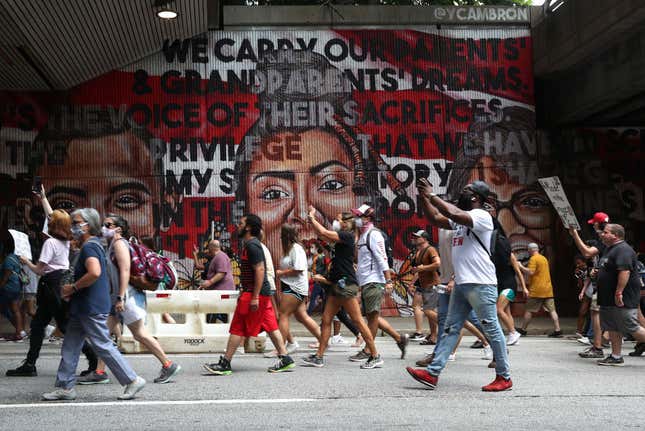
Providence R.I. recently signed a $10 million budget to allocate to the Providence Municipal Reparations program. However, there’s one issue. While Black and Native American residents automatically qualify, but a separate income bracket will also pull half of Providence’s white residents, according to the Washington Post.
This is angering a lot of minority residents of the city, especially when you consider that Black people only make up 12% of the population in Providence.
From The Washington Post:
“This is a short-term response to a 400-year problem because it makes people feel better,” said Justice Gaines, a local Black poet, and community organizer. “My big fear is that there are now White people in our state who could say we already gave them reparations,” and nothing more needs to be done.
There was a 194-page report done by the African American Ambassador Group that chronicled Providence’s involvement in the slave trade as well as years of racist policies that were inflicted against the city’s minority population. The report suggested Providence apologize for its enslavement role and to create a reparations program.
This $10 million allotment is funded by federal COVID-19 money, so it has to be spent in a “race-neutral” way. However, the funds are still going toward homeownership and financial literacy courses.
For a person to qualify, they must be a Providence resident of either Native American or Black ancestry, including Black immigrants who are not descendants of American slavery. Also, residents earning less than about $50,000 a year — or are living in specific neighborhoods will also qualify. That can include many of Providence’s white residents, who comprise 53% of the population.
While officials are hopeful this program can help close the racial wealth gap, clinical assistant professor of family medicine at Brown University and a member of the African American Ambassador Group, Dannie Ritchie, is worried that the main point will be lost.
Also, from The Washington Post:
“I just kept saying don’t conflate what we’re doing with reparations, just don’t do it,” said Ritchie. “You can’t just throw around $10 million for this-and-that program and call it reparations because then it will be done without ever really having a conversation about what repairing the harm would look like. You’re just throwing terms around.”

